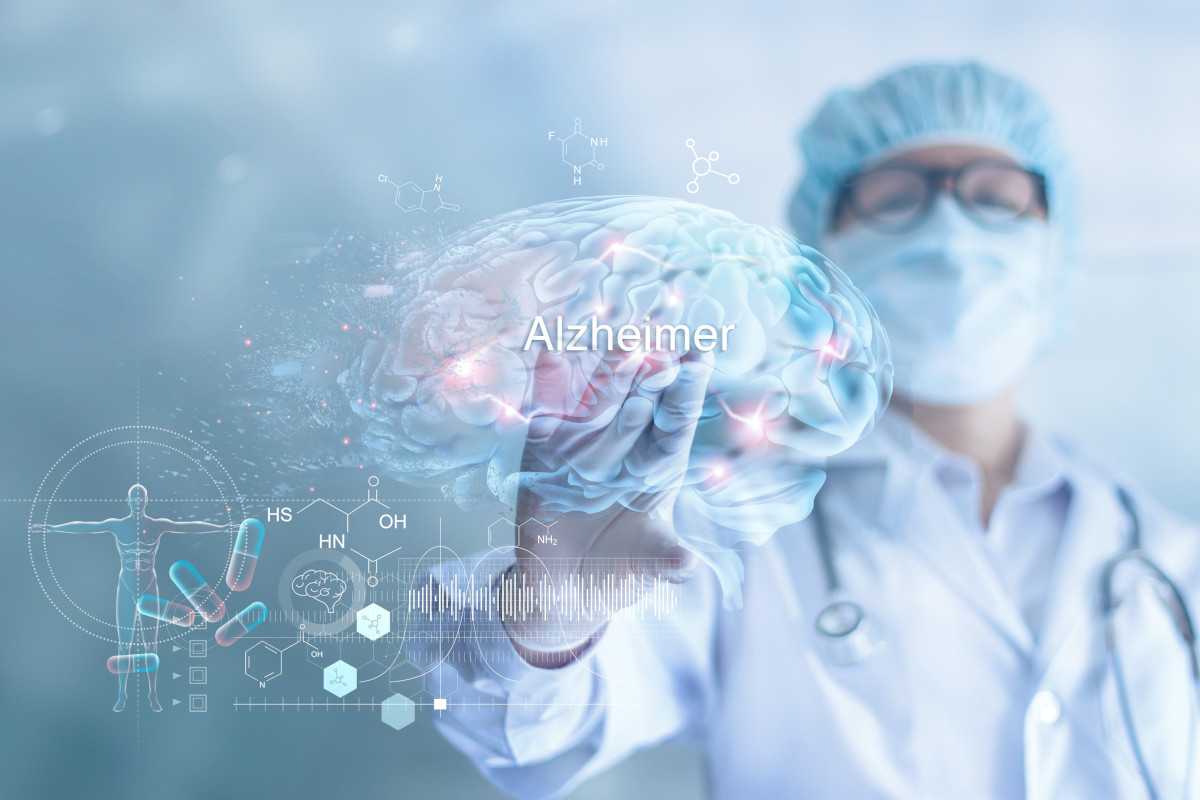Health
Alzheimer’s disease: what it is, symptoms and causes

Alzheimer's disease is a common form of dementia that mostly comes on as we get older. Let's find out what the symptoms are and how to act.
Alzheimer's disease (AD) better known as Alzheimer's disease is a neurodegenerative disease characterized by the progressive death of nerve cells related to learning and memory. It is a rather widespread problem, with precise symptoms but which it is important to recognize promptly. Here, then, is all that is important to know about it and how to behave when it occurs.
Alzheimer's disease: what it is and what it entails
This disease, which is also the most common form of dementia, is typical of old age.
In other words, it is a neurodegenerative syndrome affecting the brain cells. Those who suffer from it, therefore, tend to lose their short-term memory and their cognitive functions.

To date, it is not yet known with certainty what are the causes that lead to the development of this disease. However, more and more experts believe that there are both genetic and environmental factors at the base to which lifestyle and familiarity are also linked. It is therefore a disease that is often difficult to diagnose at the first signs and for which the utmost attention must be paid in order to be able to intervene as soon as possible.
Unfortunately, the disease is not yet curable. However, there are several treatments that can slow it down or make it more bearable.
Going to the etymology , Alzheimer's disease is so called because it takes its name from the German neuropathologist who first described it in 1906. His name was precisely Alois Alzheimer. The disease only became known in 1910, slowly becoming more and more known and recognized among the patients who suffered from it. To date, it is estimated that at least 50 million people suffer from it.
The main causes of Alzheimer's disease
This disease has a difficult excursus to establish and for this reason it can be difficult to recognize, especially at the beginning. Although there are no really known causes yet, experts agree that in addition to familiarity, lifestyle can also affect it. Lifestyle that if changed in time can help slow down the course of the disease.
For this reason, before the first signs it would always be advisable to consult a doctor , both for doubts about oneself and, as happens more often, for relatives.
Symptoms of Alzheimer's disease
Alzheimer's is a disease that usually appears after the age of 65 . Nonetheless, there are cases of juvenile or early Alzheimer's, in which the disease occurs around the age of 30.

Regardless of the moment of onset, the accompanying symptoms are lack of memory, a sense of confusion, difficulty in judging situations and many other signs that can sometimes be mistaken for tiredness , leading to a delay in diagnosing the disease. illness.
In summary, among those that are the most common symptoms and to always be taken into consideration, there are:
– Loss of short or long term memory
– Difficulty performing simple gestures
– Confusional state
– Repetition of concepts or questions
– Difficulty recognizing friends and family
– Lack of initiative
– Personality change
– Speech problems
– Sleep disturbances
– Repetitive and obsessive behaviors
– Delirium
– Auditory hallucinations
– Difficulty swallowing
– Weight loss
– Progressive loss of motor control
– Incontinence
These symptoms, which are the main ones, appear slowly and progressively as the disease progresses. Added to this is the fact that the last symptoms in the list can lead to other types of problems such as lack of nutrition , dehydration , pneumonia, fractures, etc… Moreover, at an advanced stage of the disease, the Alzheimer's patient he is more capable of taking care of himself and requires total and continuous assistance.
Alzheimer's disease: life expectancy
According to some estimates, Alzheimer's disease reduces life expectancy. In fact, the disease can lead to death within 10 years of its onset . Usually for problems related to respiratory complications.
Obviously this is a rough estimate, which varies from person to person and which has longer expectations in younger patients. This is also supported by the many studies in progress and by some external interventions such as, for example, lifestyle changes, the right physical activity and a healthier diet.
Furthermore, early diagnosis is always very important and, for those who do not suffer from it but are familiar with the disease, prevention. Today, for example, one of the methods considered most capable of slowing it down and decreasing the chances of it occurring is to follow the so-called Mind diet.
Riproduzione riservata © - WT











